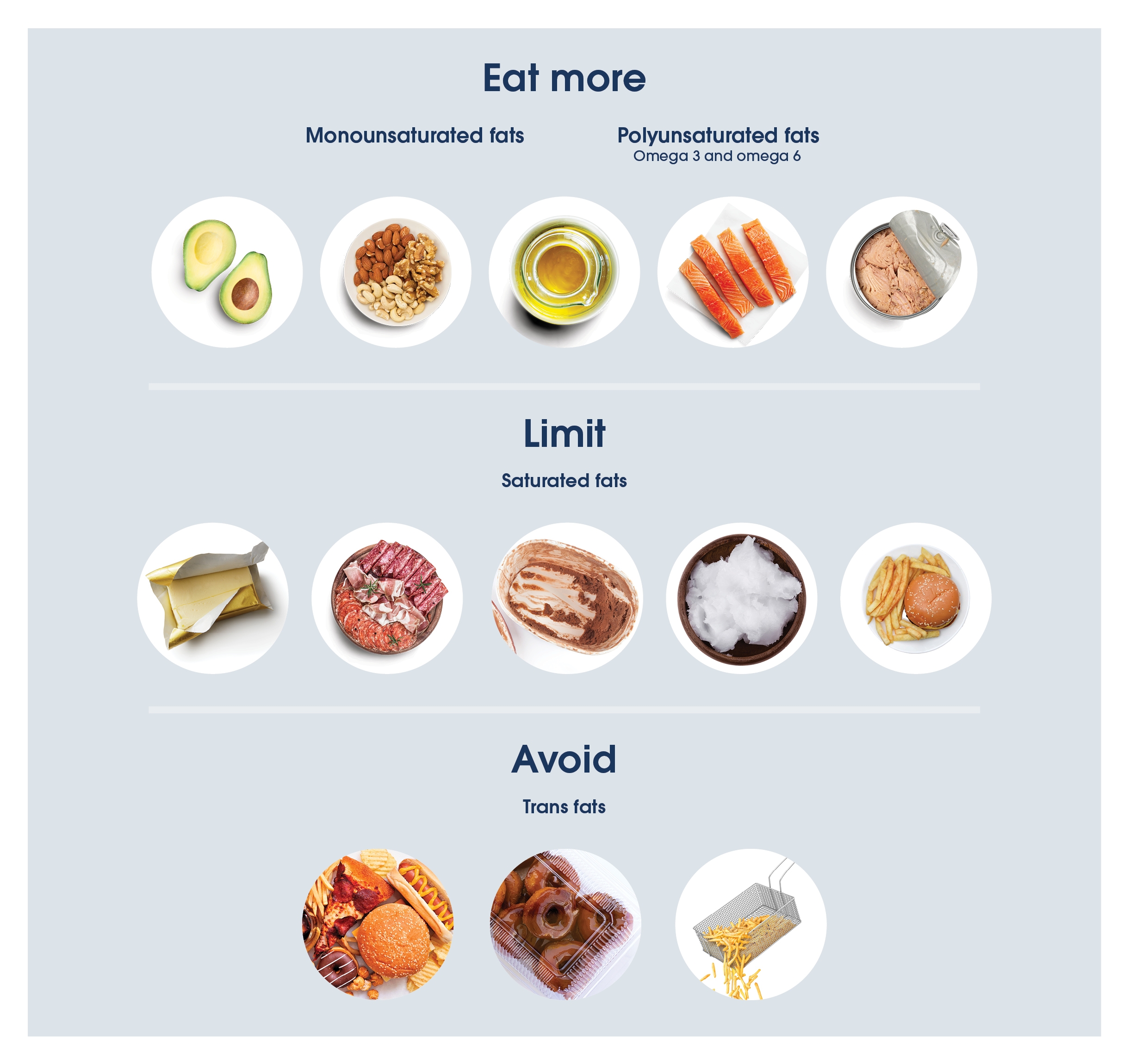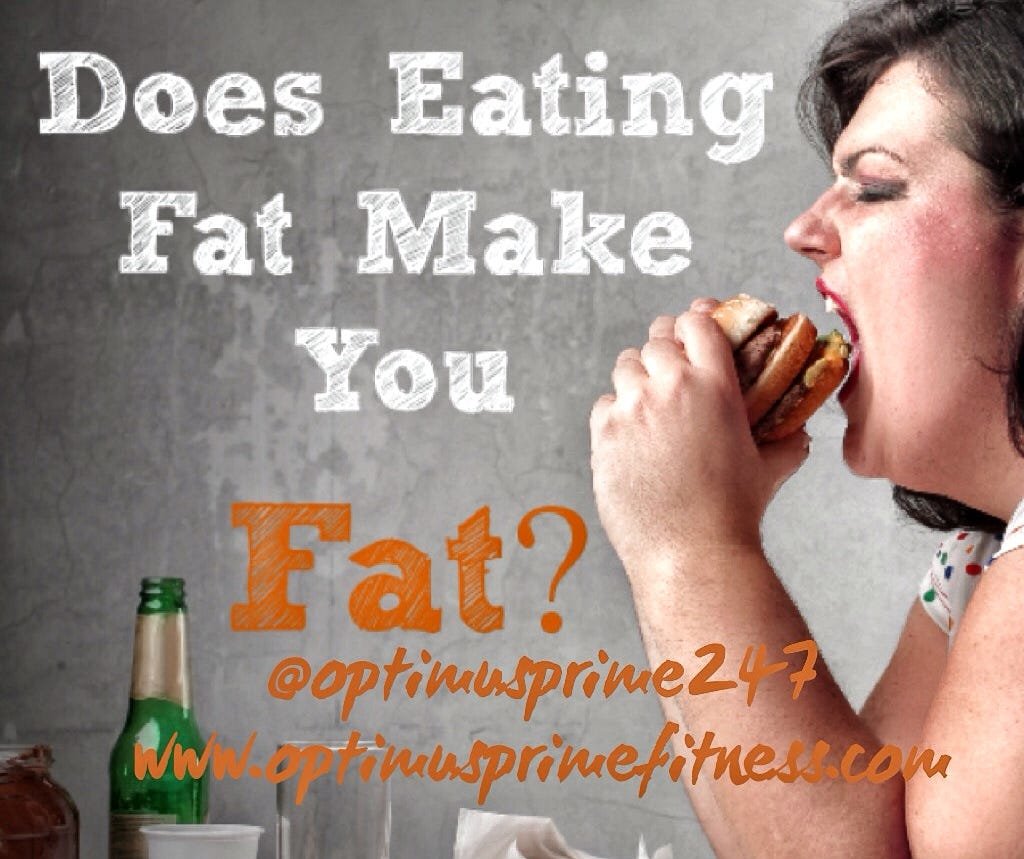Have you ever stopped to wonder if eating fat really makes you fat? You’ve probably heard it a hundred times: “Avoid fat if you want to lose weight.” But what if that’s not the whole story?
What if some fats actually help you stay healthy and even shed pounds? You’ll discover the truth behind fats and how they affect your body. By the end, you’ll know exactly what to eat without guilt—and how to use fat to your advantage.
Keep reading, because what you learn here could change the way you think about food forever.
How Fat Affects Your Body
Fat is an important part of your diet. It helps your body work properly.
Some people think eating fat makes you fat. The truth is more complex.
Types Of Dietary Fat
There are different types of fat in food. Some fats are healthy, and some are not.
Healthy fats help your heart and brain. Unhealthy fats can cause problems.
- Saturated Fats:Found in butter and meat; eat in small amounts.
- Unsaturated Fats:Found in nuts, seeds, and fish; good for health.
- Trans Fats:Found in some processed foods; bad for your body.
Fat Metabolism Basics
Your body breaks down fat into smaller parts. These parts give energy and help cells.
Fat is digested and absorbed in the intestines. Then it travels in the blood to cells.
- Fat is broken down by enzymes called lipases.
- Fatty acids enter cells to be used or stored.
- The liver helps process and make new fats.
Role Of Fat In Energy Storage
Your body stores extra fat as energy. This helps when you do not eat enough.
Fat stores more energy than carbs or protein. It keeps you going longer.
- Fat cells hold energy in a dense form.
- Stored fat can be used when food is scarce.
- Too much stored fat can lead to weight gain.
Common Myths About Fat And Weight Gain
Many people think eating fat makes you gain fat. This idea is not fully true. Fat is an important nutrient for your body.
This article clears up some myths about fat and weight gain. It helps you understand how fat works in your diet.
Fat Alone Doesn’t Cause Fat Gain
Eating fat does not directly make you fat. Your body stores fat when you eat more calories than you burn. Fat is one source of calories, but not the only one.
Your body uses fat for energy and to help absorb vitamins. It also keeps your skin and hair healthy.
Calories And Portion Control
Weight gain happens when you eat more calories than you use. Fat has more calories per gram than protein or carbs. This means small portions of fat can add many calories.
Controlling portion size helps keep calorie intake balanced. Eating large amounts of any food, even healthy fat, can cause weight gain.
- Fat has 9 calories per gram
- Protein and carbs have 4 calories per gram
- Watch portion sizes to manage calories
Misconceptions From Low-fat Diets
Low-fat diets became popular to lose weight. Some people think all fat is bad. This is not true because some fats are good for health.
Removing too much fat can lead to eating more sugar or carbs. This can cause more weight gain and health problems.
- Good fats come from nuts, fish, and oils
- Low-fat foods may have added sugar
- Balance is key, not removing fat completely
Benefits Of Healthy Fats
Eating fat does not always make you fat. Healthy fats are good for your body.
These fats help with many important functions. They keep your heart, brain, and body strong.
Improving Heart Health
Healthy fats like omega-3s lower bad cholesterol. This helps reduce heart disease risk.
These fats also lower inflammation in your blood vessels. This keeps your heart working well.
- Reduce bad LDL cholesterol
- Increase good HDL cholesterol
- Lower blood pressure
- Reduce inflammation
Supporting Brain Function
The brain needs fat to work properly. Healthy fats improve memory and thinking skills.
Omega-3 fats help build brain cells. They also protect the brain from damage.
- Boost memory and learning
- Support brain cell growth
- Protect against cognitive decline
Enhancing Satiety And Appetite Control
Healthy fats make you feel full longer. This helps control your appetite and avoid overeating.
Eating fats slows digestion. This keeps hunger away and helps with weight management.
- Increase feelings of fullness
- Slow down digestion
- Help control hunger
- Support healthy weight

Fat Vs. Carbs And Protein In Weight Management
Many people wonder if eating fat makes you fat. The truth depends on how different nutrients affect your body. Fat, carbs, and protein all play unique roles in weight management.
Understanding these macronutrients helps you make better food choices. This guide looks at how fat compares to carbs and protein.
Comparing Macronutrient Effects
Fat has more calories per gram than carbs and protein. Fat has 9 calories per gram. Carbs and protein each have 4 calories per gram. Eating too many calories from any source can cause weight gain.
Carbs often raise blood sugar quickly. Protein helps build muscle and keeps you full longer. Fat also helps with fullness and supports body functions.
- Fat provides long-lasting energy
- Carbs give quick energy
- Protein supports muscle repair
Impact On Insulin And Hormones
Carbs can increase insulin levels more than fat or protein. Insulin helps store energy but can also lead to fat storage if levels stay high. Protein and fat cause smaller insulin responses.
Fat intake does not spike insulin but affects other hormones. These hormones control hunger and fat storage. Balancing macronutrients helps keep hormones steady and supports weight control.
- Carbs raise insulin quickly
- Protein triggers moderate insulin
- Fat has little effect on insulin
- Hormones control hunger and fat storage
Choosing Balanced Meals
Balanced meals include fat, carbs, and protein in good amounts. This mix helps control hunger and energy levels. Avoiding too much of one nutrient supports healthy weight.
Eating fat does not make you fat alone. Calories and overall food choices matter most. Choose whole foods like vegetables, lean protein, healthy fats, and whole grains.
- Include healthy fats like nuts and olive oil
- Eat complex carbs like vegetables and whole grains
- Choose lean protein such as chicken and beans
- Watch portion sizes to control calories
How To Include Fat Wisely In Your Diet
Eating fat does not always cause weight gain. Fat is an important part of a healthy diet. It helps your body absorb vitamins and gives you energy.
Choosing the right types of fat can keep you healthy. It is important to know which fats to eat and how to use them in your meals.
Sources Of Healthy Fats
Healthy fats come from natural foods. These fats support your heart and brain health. Include these fats in your diet regularly.
- Avocados
- Nuts like almonds and walnuts
- Seeds such as chia and flaxseeds
- Olive oil and other vegetable oils
- Fatty fish like salmon and mackerel
Avoiding Trans Fats And Excess Saturated Fats
Trans fats and too much saturated fat can harm your health. They increase bad cholesterol and risk of heart disease. Avoid foods with these fats.
Check food labels for trans fats. Limit foods like fried items, fast food, and baked goods made with hydrogenated oils.
- Read nutrition labels carefully
- Choose foods with no trans fats
- Limit butter, cream, and fatty meats
- Eat lean meats and low-fat dairy
Tips For Cooking With Fat
Use healthy oils for cooking to keep fat good. Avoid heating oils too much to prevent damage. Use small amounts to keep food tasty and healthy.
- Cook with olive oil or avocado oil
- Use non-stick pans to use less oil
- Avoid deep frying often
- Add nuts or seeds to salads for extra fat
Scientific Studies On Fat And Weight
People often wonder if eating fat causes weight gain. Scientists have studied how fat affects body weight. These studies help us understand the real impact of fat on our health.
This article looks at research on fat and weight. It explains what the studies found about eating fat and body fat.
Key Research Findings
Many studies show that eating fat does not always make you fat. Weight gain depends on total calories, not just fat. People can eat fat and still lose weight if they eat fewer calories overall.
Research also finds that fat helps keep you full. It can reduce hunger and help control how much you eat later.
Long-term Weight Outcomes
Long studies show that diets with moderate fat can support healthy weight over time. Low-fat diets do not always lead to better weight loss. Some people do better with more fat in their diet.
Consistency and calorie control matter more for long-term weight than fat amount alone. Eating habits and physical activity also play big roles.
Fat Quality Vs. Quantity
Not all fats affect weight the same way. Healthy fats from nuts, fish, and olive oil can improve weight and heart health. Unhealthy fats, like trans fats, may increase weight and health risks.
- Healthy fats: monounsaturated and polyunsaturated fats
- Unhealthy fats: trans fats and some saturated fats
- Healthy fats support metabolism and reduce inflammation
- Unhealthy fats can cause fat storage and raise bad cholesterol

Frequently Asked Questions
Does Eating Fat Directly Cause Weight Gain?
No, eating fat does not directly cause weight gain. Weight gain happens when you consume more calories than you burn. Healthy fats are essential for the body and can support weight loss when eaten in moderation.
Are All Fats Unhealthy For Weight Management?
No, not all fats are unhealthy. Unsaturated fats like those in nuts, avocados, and olive oil are beneficial. Trans fats and excessive saturated fats can harm health and contribute to weight gain.
How Do Fats Affect Metabolism And Weight Loss?
Fats slow digestion, helping you feel full longer. This can reduce overall calorie intake. Including healthy fats in your diet can improve metabolism and support weight loss efforts.
Can A Low-fat Diet Help You Lose Weight?
A low-fat diet can help some people lose weight, but it’s not the only way. Balanced diets with healthy fats often lead to better, sustainable weight loss results.
Conclusion
Eating fat does not automatically cause weight gain. Your body needs healthy fats to work well. Too much of any food can add pounds. Balance and portion control matter most for weight. Choose good fats like nuts, fish, and avocados.
Avoid processed and fried foods with bad fats. Focus on overall diet and daily activity. Fat is part of a healthy eating plan. Understanding fat helps you make better food choices. Keep learning and stay mindful of what you eat.



